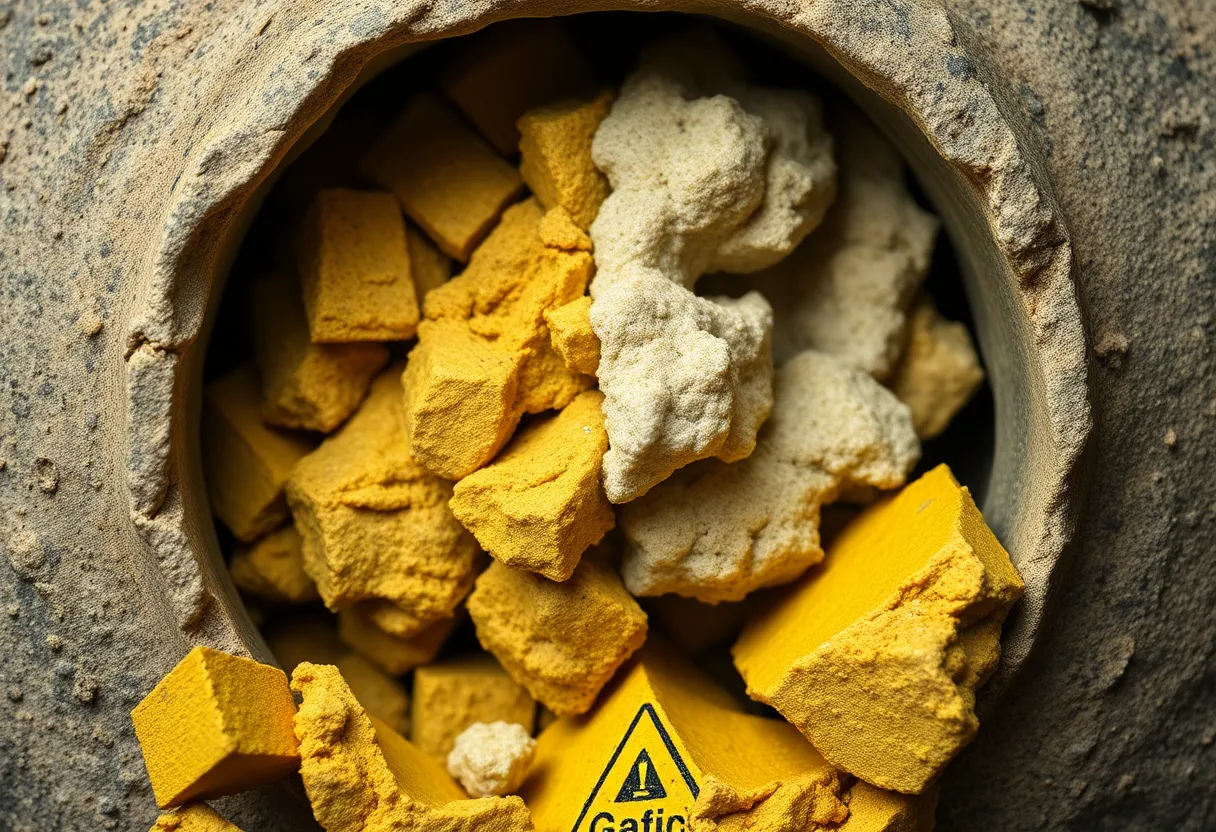News Summary
The Trump administration’s reconsideration of the chrysotile asbestos ban sparks controversy amid growing concerns over public health and safety.
An Unsettling Shift: The Battle Over Chrysotile Asbestos Ban
In a shocking turn of events, the Trump administration is set to reconsider the ban on chrysotile asbestos, famously known as “white asbestos.” This substance, still allowed for use in the United States, is embroiled in controversy due to its dire link to devastating health issues, including lung cancer and the aggressive cancer known as mesothelioma.
EPA’s Groundbreaking Move
Under the Biden administration, the Environmental Protection Agency (EPA) made waves by finalizing a comprehensive ban on chrysotile asbestos, projected to take effect in summer 2024. This ban is not merely a standalone decision; it is the culmination of decades of advocacy to align the United States with over 50 countries that have already prohibited the substance due to its health risks.
The Heavy Toll of Asbestos Exposure
Asbestos exposure is a silent killer, claiming the lives of over 40,000 Americans annually, according to data from the EPA during the Biden era. Despite these staggering statistics, the reconsideration of the chrysotile asbestos ban has drawn the ire of health advocates and activists who see this as a major setback in the fight for public health.
A Complicated Transition Period
The Biden administration’s decision to phase out chrysotile asbestos grants companies a 12-year adjustment period to shift away from its use. Still, this phased approach is under siege, as various businesses and industry groups, including the American Chemistry Council, have initiated legal action challenging the legality of the ban, emphasizing corporate interests over public health.
The Trump Administration’s Stance
Revisiting the ban, the Trump administration indicated that the reconsideration process could take upwards of 30 months. This delay is drawing criticism from numerous public health experts, who warn that asbestos exposure—even in minimal amounts—poses significant danger.
Lobbying Connections
The conflict of interest in the regulatory arena cannot be ignored. Lynn Ann Dekleva, formerly a lobbyist for the American Chemistry Council, now serves as the EPA Deputy Assistant Administrator for the Office of Chemical Safety and Pollution Prevention. This raises eyebrows regarding the integrity of future health regulations.
Public Sentiment and the Fight Against Asbestos
Donald Trump himself has expressed unabashed support for the use of asbestos, mistakenly labeling it as “100 percent safe” when employed correctly. This stance is buttressed by a bizarre anecdote: in 2018, a Russian asbestos company used Trump’s likeness and seal of approval in marketing materials, further muddling the narrative around this hazardous substance.
Health Experts Voice Concern
Critics including health advocates and experts have sounded the alarm over the potentially hazardous implications of delaying and rolling back the chrysotile asbestos ban. Dr. Arthur L. Frank, a public health professor, reiterates the overwhelming evidence of asbestos’s carcinogenic properties. However, some experts, like Dennis Paustenbach, argue that chrysotile asbestos carries less risk than other types of asbestos, presenting an ongoing debate within expert circles.
Legislative Response and Future Directions
Amidst this turmoil, the Alan Reinstein Ban Asbestos Now (ARBAN) Act is poised for a bipartisan push into 2025, aiming to ensure a comprehensive ban on all asbestos forms. Advocates like Linda Reinstein, a widow victim of mesothelioma, assert that the urgency for stringent regulations has never been greater.
Looking Ahead
The reconsideration of the chrysotile asbestos ban by the Trump administration represents a critical junction for public health policy in the United States. With lives at stake and the potential for a dangerous rollback of health regulations, the fight against asbestos exposure is far from over.
Deeper Dive: News & Info About This Topic
HERE Resources
The Changing Landscape of Cancer Detection and the Resurrection of Asbestos Issues
Historic Charges Against The School District of Philadelphia Over Asbestos Management
Shockwaves as EPA Plans to Reconsider Asbestos Ban
The Dark Legacy of Asbestos Exposure Among Veterans: A Continual Struggle
The Truth Behind BAP1 Mutations and Mesothelioma: Clearing Up Misconceptions
Los Angeles Wildfires: A Hidden Danger of Asbestos Contamination Looms Over Cleanup Efforts
Libby Asbestos Clinic in Crisis: Federal Court Hearing Sparks Controversy
The Lingering Danger of Asbestos: A Call for Action
Clinic Closure Leaves Libby Residents in the Lurch
The Looming Danger: Asbestos Regulations in Jeopardy



















